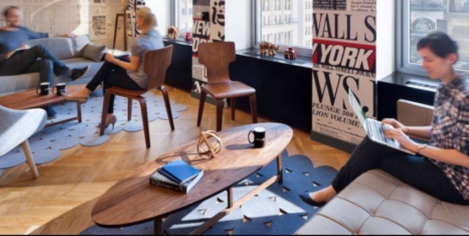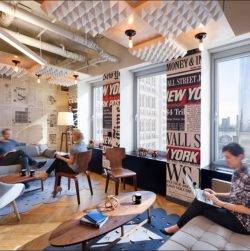January 18, 2019
Working environment, not time of the year has most negative effect on staff wellbeing
 Half of employees say that their working environment has a negative effect on their mental health (51 percent) and wellbeing (49 percent) and two-thirds (67 percent) say that they only ‘sometimes, rarely or never’ feel valued at work. The research by Peldon Rose shows that two-thirds of employees (64 percent) currently have poor or below average mental wellbeing and that the majority (56 percent) claim increasing workloads, followed by a lack of time to focus on wellbeing and exercise (46 percent) are the leading causes of their stress. While half of employees think introducing exercise facilities will help them to better tackle their workplace stress (50 percent) – less than a fifth of workplaces (16 percent) currently provide these facilities, something employers should consider when looking to boost the morale of their workforce.
Half of employees say that their working environment has a negative effect on their mental health (51 percent) and wellbeing (49 percent) and two-thirds (67 percent) say that they only ‘sometimes, rarely or never’ feel valued at work. The research by Peldon Rose shows that two-thirds of employees (64 percent) currently have poor or below average mental wellbeing and that the majority (56 percent) claim increasing workloads, followed by a lack of time to focus on wellbeing and exercise (46 percent) are the leading causes of their stress. While half of employees think introducing exercise facilities will help them to better tackle their workplace stress (50 percent) – less than a fifth of workplaces (16 percent) currently provide these facilities, something employers should consider when looking to boost the morale of their workforce.









 New research has found that over 2 million UK workers think about quitting their job every day and this figure was significantly higher amongst younger workers, aged 18-24, with 12 percent of those surveyed stating they think about this daily. The research by CABA, a charity supporting the wellbeing of chartered accountants and their families, also highlighted that 38 percent of employees regularly encountered stressful situations at work. Women were most likely to feel this way, with 41 percent revealing they deal with stressful circumstances at least once a week. Comparatively, only 34 percent of male employees admitted to encountering such situations on at least a weekly basis. Many factors were cited as contributing to employees feeling stressed, including unrealistic expectations and unmanageable workloads. Regardless of how it manifests itself within the working environment it can have a negative impact on employee wellbeing, with over 1 in 10 (12 percent) missing at least 52 family events or personal commitments each year.
New research has found that over 2 million UK workers think about quitting their job every day and this figure was significantly higher amongst younger workers, aged 18-24, with 12 percent of those surveyed stating they think about this daily. The research by CABA, a charity supporting the wellbeing of chartered accountants and their families, also highlighted that 38 percent of employees regularly encountered stressful situations at work. Women were most likely to feel this way, with 41 percent revealing they deal with stressful circumstances at least once a week. Comparatively, only 34 percent of male employees admitted to encountering such situations on at least a weekly basis. Many factors were cited as contributing to employees feeling stressed, including unrealistic expectations and unmanageable workloads. Regardless of how it manifests itself within the working environment it can have a negative impact on employee wellbeing, with over 1 in 10 (12 percent) missing at least 52 family events or personal commitments each year.














 Huge numbers of employees have or have had access to mission critical company systems which should be reserved only for staff that require it, claims a new study by CyberArk. Specifically, it found that almost half (48 percent) of employees have or have had access to sensitive financial documents; 46 percent to confidential HR information; nearly a third (29 percent) have or have had direct access to company bank account and over a third (37 percent) access to research and development plans or blueprints for new products/services. Credential theft remains the most common and effective route to a successful cyber-attack.
Huge numbers of employees have or have had access to mission critical company systems which should be reserved only for staff that require it, claims a new study by CyberArk. Specifically, it found that almost half (48 percent) of employees have or have had access to sensitive financial documents; 46 percent to confidential HR information; nearly a third (29 percent) have or have had direct access to company bank account and over a third (37 percent) access to research and development plans or blueprints for new products/services. Credential theft remains the most common and effective route to a successful cyber-attack.









January 7, 2019
What Leonardo da Vinci can teach us about the six hour working day 0
by Mark Eltringham • Comment, Flexible working, Technology, Wellbeing
More →